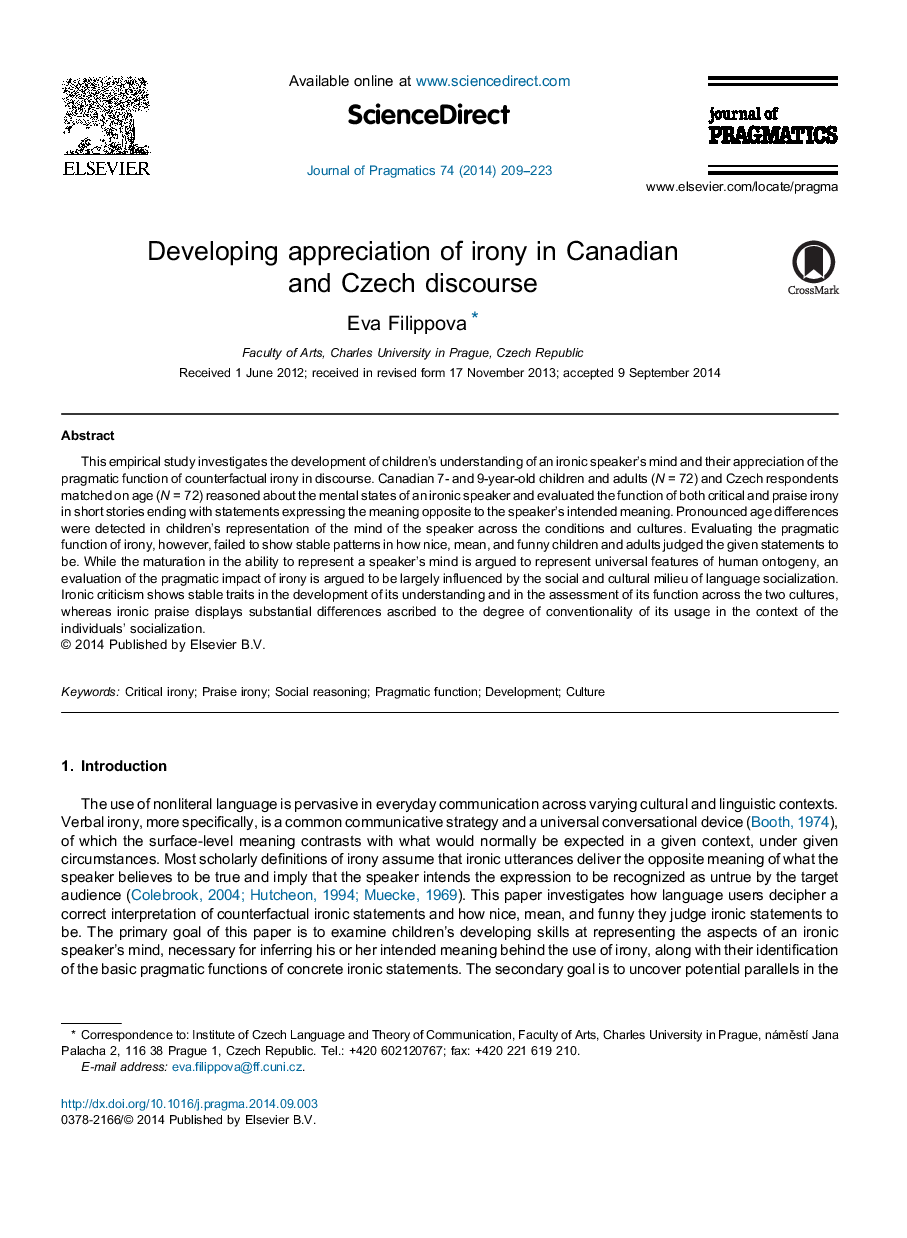| Article ID | Journal | Published Year | Pages | File Type |
|---|---|---|---|---|
| 932667 | Journal of Pragmatics | 2014 | 15 Pages |
•Contrasting social-reasoning skills and evaluation of pragmatic function of irony.•Contrasting appreciation of critical and praise irony in two cultures.•Examining universal cognitive skills and social and cultural influences.•Discussing mechanisms used by native listeners in deciphering irony.
This empirical study investigates the development of children's understanding of an ironic speaker's mind and their appreciation of the pragmatic function of counterfactual irony in discourse. Canadian 7- and 9-year-old children and adults (N = 72) and Czech respondents matched on age (N = 72) reasoned about the mental states of an ironic speaker and evaluated the function of both critical and praise irony in short stories ending with statements expressing the meaning opposite to the speaker's intended meaning. Pronounced age differences were detected in children's representation of the mind of the speaker across the conditions and cultures. Evaluating the pragmatic function of irony, however, failed to show stable patterns in how nice, mean, and funny children and adults judged the given statements to be. While the maturation in the ability to represent a speaker's mind is argued to represent universal features of human ontogeny, an evaluation of the pragmatic impact of irony is argued to be largely influenced by the social and cultural milieu of language socialization. Ironic criticism shows stable traits in the development of its understanding and in the assessment of its function across the two cultures, whereas ironic praise displays substantial differences ascribed to the degree of conventionality of its usage in the context of the individuals’ socialization.
